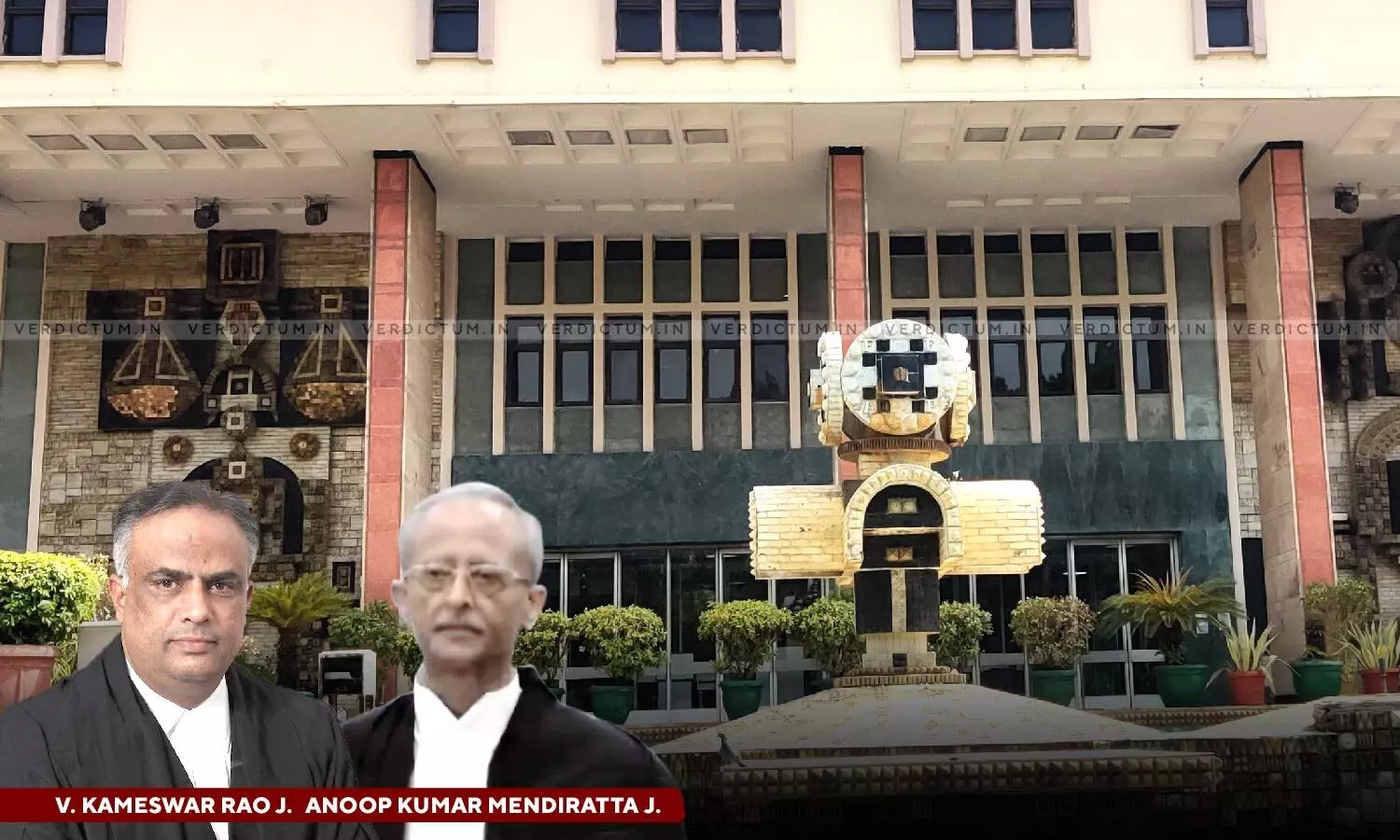
Spouse Having Earning Capacity Choosing To Be Unemployed Must Not Saddle Other Party With Responsibility: Delhi HC Reduces Maintenance Awarded To Wife
 |
|The Delhi High Court has held that a spouse having the capacity to earn, choosing to be unemployed, should not be allowed to burden the other party with one-sided responsibility of meeting expenses.
It said that the provision of maintenance under the Hindu Marriage Act, 1955 (HMA) is gender neutral.
An appeal was filed against the order passed by the Family Court (South), Saket, New Delhi by which the husband was directed to pay Rs. 30,000/- as maintenance.
A Division Bench of Justice V. Kameswar Rao and Justice Anoop Kumar Mendiratta said, “The spouse having a reasonable capacity of earning but who chooses to remain unemployed and idle without any sufficient explanation or indicating sincere efforts to gain employment should not be permitted to saddle the other party with one sided responsibility of meeting out the expenses. The equivalence does not have to be with mathematical precision but with the objective to provide relief to the spouse by way of maintenance pendente lite and litigation expenses, who is unable to maintain and support during the pendency of proceedings and to ensure that party should not suffer due to paucity of source of income. The provision is gender neutral and the provisions of Section 24 & 25 of HMA provide for the rights, liabilities and obligations arising from marriage between the parties under HMA.”
Advocate Aditya Gaur represented the appellant/husband while Advocate Sachin Bansal represented the respondent/wife.
Facts of the Case -
The parties were married on November 19, 2018 as per Hindu rites and ceremonies. Further, wife returned to her parental home on July 07, 2020 owing to differences between the parties. The wife then preferred a complaint under Section 12 of the Protection of Women from Domestic Violence Act, 2005 (‘PWVD Act’ for short) against the husband and his family members on January 27, 2021, wherein the husband was directed to pay ₹21,000/- per month to the wife as maintenance vide an order dated December 12, 2022.
The husband also preferred the divorce petition against wife before the Family Court wherein an order was passed under Section 24 of HMA, directing the husband to pay ₹30,000/- per month towards maintenance pendente lite to the wife along with litigation expenses of Rs. 51,000/-. Hence, the matter was before the High Court.
The High Court in the above context of the case noted, “As per the copy of pay slip for the month of May, 2022 filed on record, out of gross salary of ₹1,04,276/-, deduction of ₹25,000/- is reflected against ‘court recovery’, ₹17,425/- against ‘society recovery’ apart from other statutory deductions. Thus, the net salary received by the appellant after deductions and recoveries is ₹56,492/-. The reasons for granting higher maintenance pendente lite of ₹30,000/- per month when compared to maintenance of ₹21,000/- per month awarded in the proceedings under PWDV Act initiated by the respondent, have not come up in the impugned order. Even, no substantial change of circumstances after passing of order in proceedings under PWDV Act has been brought to our notice.”
The Court added that while considering the quantum of maintenance, the liabilities of the husband along with his duties towards other family members cannot be ignored. It said that though the wife claims to have no independent source of income but has reasonable educational background being a graduate from Delhi University.
“She appears to have voluntarily undertaken social work as claimed despite there being no impediment for undertaking a meaningful employment. … We are of the considered opinion that maintenance pendente lite at the rate of ₹21,000/- per month to the respondent, as paid in the proceedings under PWDV Act from the date of filing of the petition before the learned Family Court till its disposal would be reasonable”, observed the Court.
Accordingly, the High Court disposed of the appeal, modified the order, and reduced the amount of maintenance with progressive increase with time considering inflation.
Cause Title- Chetram Mali v. Karishma Saini (Neutral Citation: 2023:DHC:8322-DB)